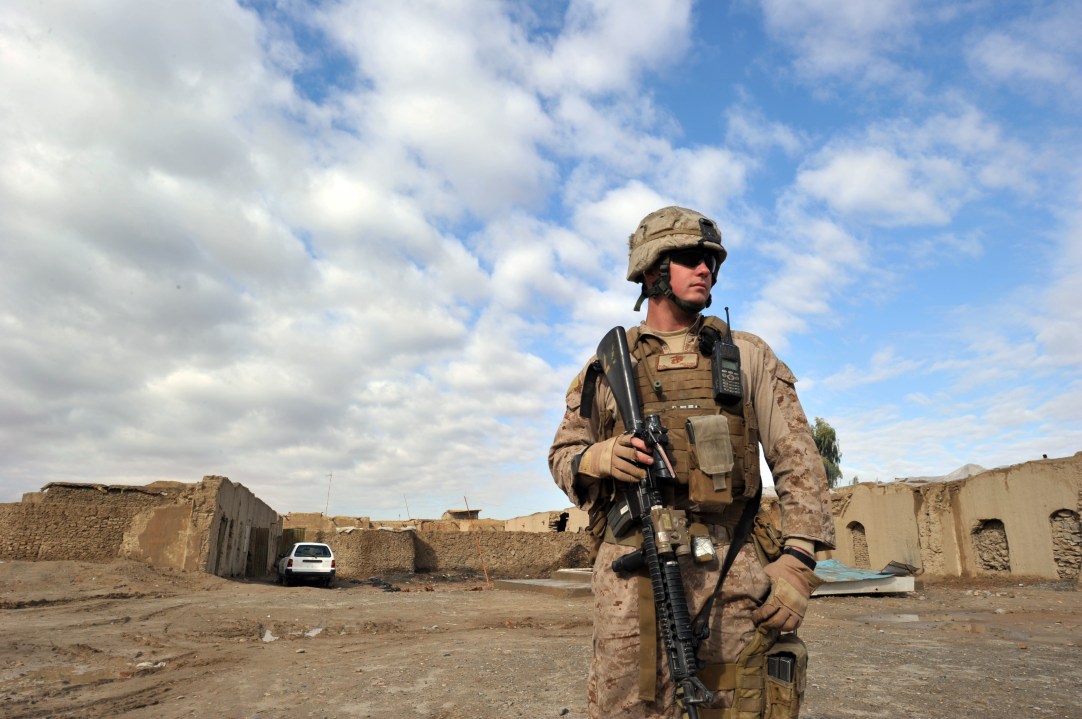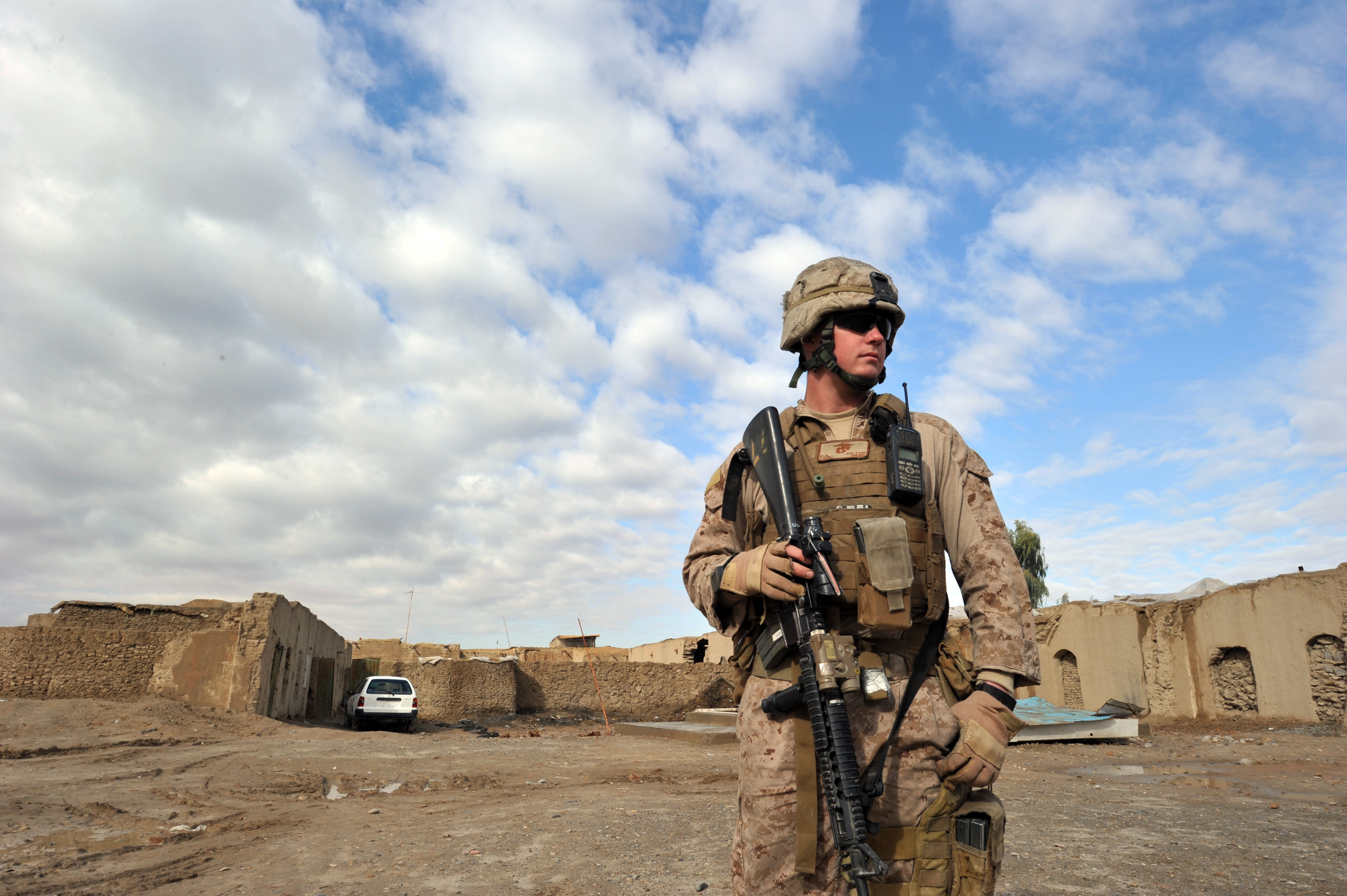Con Coughlin suggests Barack Obama has “given up” fighting al-Qaeda which, frankly, is a curious assessment given the ongoing drone war (and other operations) in Pakistan and Afghanistan. Roger Kimball, however, makes Coughlin look like a piker since, according to Kimball, Obama’s inauguration speech yesterday contained shades of Neville Chamberlain. Yes, really.
These may be extreme reactions but there is evidently a widespread sense that Obama is some form of “neo-isolationist” hellbent on retreating from a big, bad and dangerous world so he may instead concentrate upon our old chum “nation-building at home”. If by this you mean Obama is unlikely, as matters presently stand, to send 250,000 American troops into battle then, yes, I suppose this charge has some merit. But a reluctance to launch a new war (against whom, incidentally?) does not an isolationist make. The term has been devoid of value for half a century now and shows no sign of becoming more useful now. And yet it refuses to disappear.
Indeed, any US “withdrawal” is a withdrawal in mere relative terms. Given recent experiences you might think that a prudent course. Haven’t we discovered that money, willpower and the world’s most formidable military are still not always enough to guarantee success?
In today’s Financial Times, Gideon Rachman offers a more sober version of the complaint that America is turning inwards but even this fails to convince. There is an element of the Boy Who Cried Wolf about these concerns. We heard them when Bill Clinton was elected. We heard them when George W Bush was elected. And we’ve heard them, twice, when Barack Obama was elected. And yet, despite all this, there’s been no significant move towards isolation. At least not if isolation is going to retain its traditional meaning. Nor does any of this pass muster if you confine yourself to the more neutral term “retreat”.
Consider the evidence Rachman musters.
In foreign affairs, it looks as though Mr Obama’s biggest goal is to be the president who brought the boys back home. He declared firmly that “a decade of war is now ending”. He concluded the conflict in Iraq in his first term, and plans to pull out of Afghanistan in his second.
These are popular measures. And, again, the drone war (whatever you think of it) is going to continue. Next:
Mr Obama’s actions speak as loudly as his words. He intervened only reluctantly in Libya, and America’s arm’s-length attitude to the conflict gave birth to the now-famous phrase “leading from behind”.
An intervention is an intervention even if it is a reluctant intervention. To use the deployment of American military hardware in Libya as an example of international retrenchment is as bizarre as it is untenable.
But what about Syria? What indeed?
America’s reluctance to intervene there is palpable – and, without the US to prompt and support them, the much weaker Europeans are certainly not going to get involved.
Yet the situation is deteriorating fast, in both strategic and humanitarian terms. There are now more than 60,000 dead, and jihadist forces are gaining ground among the opposition to President Bashar al-Assad. The embarrassing truth is that tiny Qatar is exerting more influence on the ground than the US or Nato.
But what is the United States supposed to do in Syria? Answer comes there none. It is not embarrassing that Qatar is “exerting more influence” than the US if there is little to nothing useful for the US to do. The carnage in Syria may – indeed is – appalling but it would surely be more embarrassing to dive into a foolhardy course of action simply because American foreign policy machismo demands that the US cannot leave any conflict, anywhere, the hell alone. The US cannot prevent Syrians from fighting a civil war if that is what Syrians want to do.
What else? Well…
It is already clear that in the second Obama term, the Pentagon budget will fall – and America will seek to cut back rather than expand its foreign engagements.
Maybe. But since the US military budget is, in real terms, larger than it was for much of the Cold War a reasonable observer could conclude that it can stomach some gut-stapling reduction without seriously jeopardising American military supremacy.
Of course, there is always the chance that something new will arise somewhere else in the world that will demand the American president’s attention. Like, say, China:
In recent years, it has been the Middle East that has tended to throw up such events – and Iran remains an obvious candidate for the president’s second term. But the biggest and most dangerous crisis of them all could be building in east Asia – where war talk between Japan and China has grown to dangerous levels in their dispute over the Senkaku-Diaoyu islands. The US has already sent a couple of emergency missions to try to calm things down – but has also made clear that a Chinese attack on the islands would trigger America’s defence guarantee to Japan.
For Mr Obama – dedicated as he is to social reform at home, and to ending foreign wars – it must seem almost unthinkable that he could yet end up leading America into a conflict with China. But the risk, although small, is there.
Almost unthinkable? I should reckon so. But, hark at this: “The US has already sent a couple of emergency missions to try to calm things down”. In other words: the US is playing its part to keep a lid on matters and defuse tension. If that’s isolationism or any kind of retreat from the world then I’m a pomegranate. Again, the facts and examples cited by Mr Rachman – a wise and usually excellent columnist – actually contradict the argument he’s making.
The US retains a military presence (of one sort or another) in dozens and dozens of countries around the world. To the extent there is any “retreat” from europe this too is best appreciated as a continuation of a policy first suggested by George W Bush. It does not mean a retreat from interventionism; merely a rebalancing of American commitments. The expansion of the US’s operations in Australia is merely one obvious, telling, example of this.
It is true that Obama’s second inaugural contained nothing as bold or dramatic or sweeping as his predecessor’s declaration that the American mission in Bush’s second term was nothing less than the global eradication of tyranny. But that hardly makes Obama an isolationist and, besides, how the hell did that work out for Dubya anyway?
As always, when it comes to foreign policy and the American military it seems prudent to judge Presidents by what they actually do, not by what they say they might, all things being equal in a world that actually bore some resemblance to the best of all possible worlds, prefer to do.








Comments